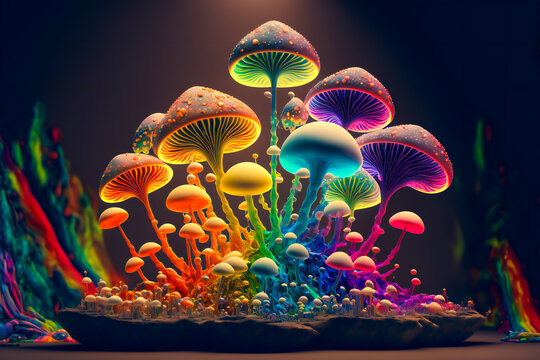CANADA,, DMT, psilocybin
Cannabis and Circadian Rhythms: Does THC Sync or Disrupt Your Sleep-Wake Cycle
Our circadian rhythm is our natural 24-hour biological clock. It regulates when we feel awake, when we get tired, and how our body functions throughout the day and night. In recent years, THC—the primary psychoactive compound in cannabis—has sparked curiosity for its effect on sleep. But is it syncing us with our body’s clock or throwing us off?
THC and the Sleep-Wake Cycle
Many people use THC to fall asleep faster or stay asleep longer. THC is known to reduce REM sleep (the dreaming stage) while increasing deep sleep. For short-term relief—especially for anxiety or insomnia—this might feel helpful. However, long-term use may blunt natural sleep patterns, leaving some users feeling groggy, unfocused, or disconnected from their natural rhythms.
Cannabis as a Circadian Reset Tool
Interestingly, some users report that THC helps them “reset” an out-of-sync sleep cycle. For example, after jet lag or shift work, a small THC dose may help ease the transition back into a regular sleep pattern. However, this effect seems to vary greatly by individual, dosage, and timing of consumption.
The Role of Psilocybin in Rest and Rhythm
Unlike THC, psilocybin edibles (such as psilocybin gummies or psilocybin chocolate) aren’t usually associated with sleep, but they can have lasting effects on mood and mental clarity that indirectly support healthier sleep cycles. Some users report improved emotional regulation and reduced anxiety after microdosing, which may contribute to better rest over time.
What makes psilocybin edibles unique is that they don’t sedate you—they help create deeper awareness. After a psilocybin journey or microdose, people often describe a sense of calm, clarity, and emotional reset. This improved mental state can help re-establish a more balanced daily rhythm.
Combining Psychedelic Insight with Cannabis Use
Some people explore combining the introspective benefits of psilocybin with the relaxing properties of THC—though not at the same time. A person might microdose psilocybin gummies in the morning for emotional clarity and take a small THC dose at night for rest. Used with intention, this pattern may support both daytime focus and nighttime recovery.
Conclusion: A Personalized Approach to Sleep and Psychedelics
THC can be both a helper and a hindrance to sleep, depending on how and when it’s used. Psilocybin edibles, while not sedating, may offer long-term emotional balance that indirectly improves sleep quality.
The key is mindfulness: tune into your body, experiment carefully, and notice what helps you feel truly rested. With the right balance, cannabis and psilocybin may support—not disrupt—your natural rhythm.


